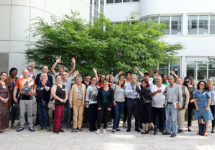
Including a participatory dimension in an evaluation − an exercise unfamiliar to the general public − had several objectives. In a context of rising mistrust towards institutions and expert opinion, the purpose was to bring the work of evaluators closer to the concerns of the general public. The aim was to improve the relevance, accessibility and quality of the evaluation by involving citizens throughout the process, in particular by incorporating their questions “as they ask them”. The two groups, each comprising around thirty people, received training and were consulted five times over the three years of the evaluation of the National Strategy for the prevention and fight against poverty 2018-2022. Their opinions were acknowledged by the evaluation committee in its reports and notes, and published in full.
The overall assessment of this process is positive. The views of people experiencing poverty and representative citizens strengthened - and even legitimised - those of the evaluation committee; they also provided qualitative input for its deliberations. Most of the participants were satisfied with an experience that they found rewarding, during which they felt useful, and which helped them develop new skills on the subject as they gained an in-depth understanding and in the practice of collective debate (public speaking, presenting arguments, etc.).
However, putting non-professionals or non-experts “in the evaluator’s shoes” proved to be a complex task. A number of difficulties had to be overcome: the breadth of the area covered by the policy under evaluation, the changes in its scope, the highly technical nature of the exercise – with data that was sometimes incomplete − and a form of fatigue that developed over the course of a process that lasted a long time and required a high level of commitment from the participants.
Despite these challenges, it would appear worthwhile to repeat such an experiment. However, a number of conditions must be met for it to be a complete success. There needs to be an appropriate choice of subject to be evaluated; real and explicit room for manoeuvre for the participants both in the upstream and downstream the evaluation work; appropriate methods for participation and professional support; effective foresight with close supervision, requiring dedicated resources; and familiarisation of the sponsors and experts with the participatory evaluation dimension. Finally, the valuable investment of the individuals involved must be recognised and valued, as they contribute with their experience, thoughts and “life skills” to improving public action.
[1] This note summarises a study assessing this experiment. See Barasz J. and Montaignac M. de (2024), “Dans la peau de l’évaluateur. La participation citoyenne à l’évaluation de la Stratégie nationale de prévention et de lutte contre la pauvreté”, Working Paper, no. 2024-01, France Stratégie, January.








